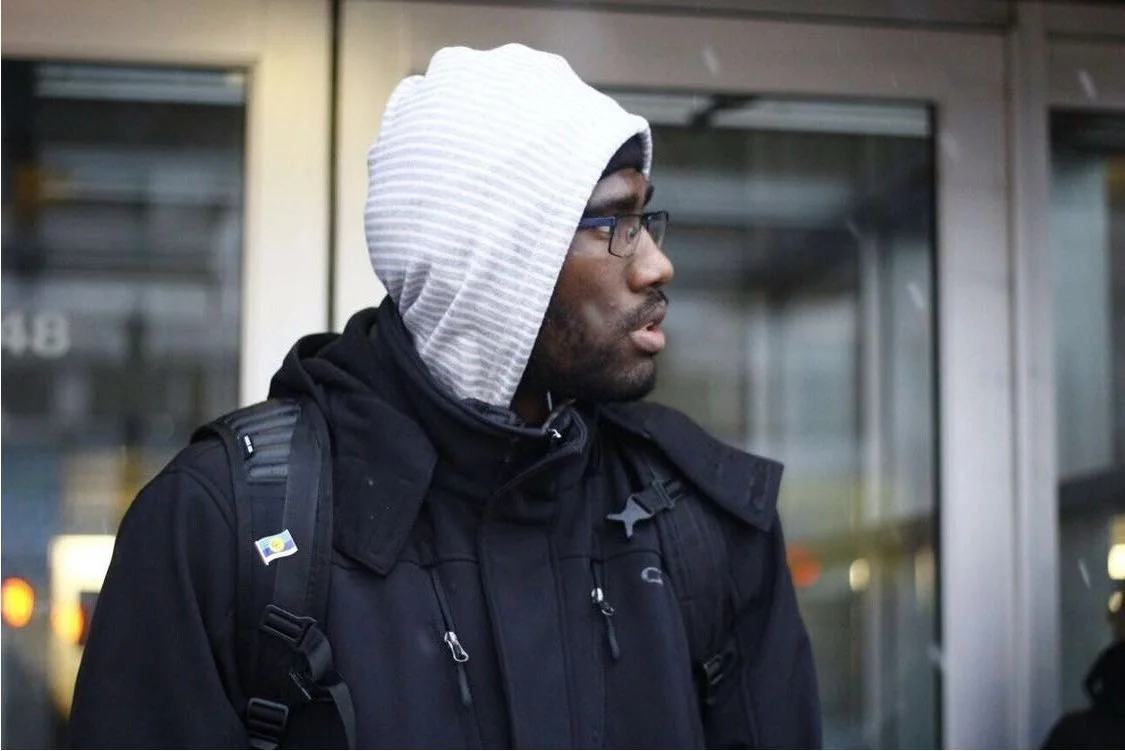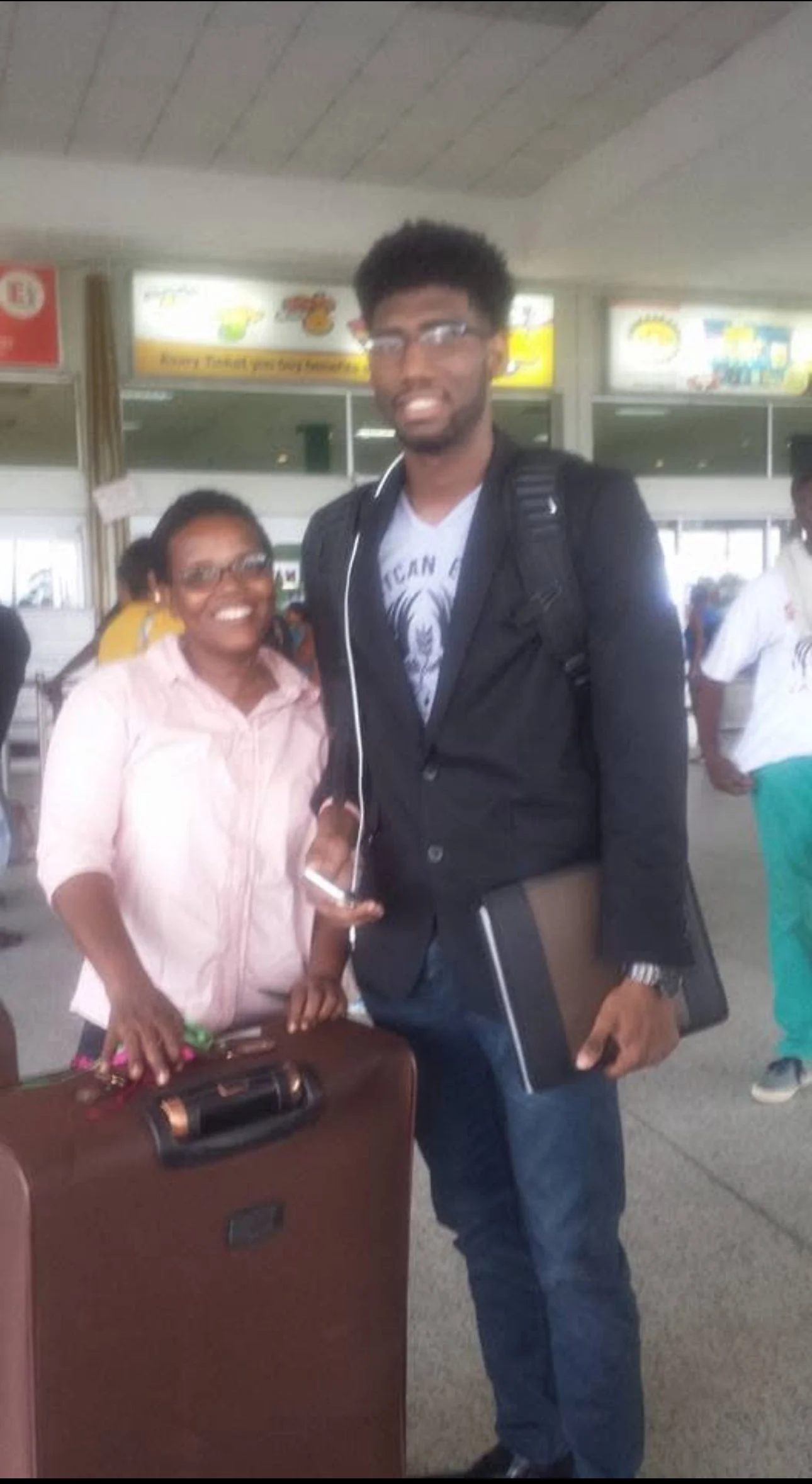Ubuntu and the Miracle of Sacrifice: Rule #3
Me, circa February 2017 (A month after arriving)
As I sit here at my desk, writing this on the eve of January 23, 2025, I can’t help but pause to sit in the weight of this seemingly ordinary date—ordinary, perhaps, to others.
Tomorrow, the 23rd will fall on a Thursday. But eight years ago, it fell on a Monday. That Monday morning at 8 a.m., I stood outside the U.S. Embassy in Georgetown, trusting God for a miracle.
The night before, Debbie and I kneeled in prayer, hearts heavy with hope. Words spilled like ink until they ran dry, replaced by the silent language of souls. Lips moved without sound, carrying the weight of unspoken pleas, the kind that only deep faith can bear.
You might ask, “Why a miracle, Daniel?” And though the answer is layered, today’s entry—and the story that follows—is nothing short of miraculous. Yet at the time, I was blissfully unaware, and therefore unprepared, for the sacrifices these eight years would demand—not just of me, but of those who walked this path alongside me.
So fittingly—and not by deliberate design—today I write about Rule No. 3 from The Playbook: A Coach’s Rules for Life:
UBUNTU IS A WAY OF LIFE:
”If we’re going to win, we need to make sacrifices.”
In my last entry titled “Blindspots and Breakthroughs: Embracing Rule #2,” I shared a simple framework for understanding new concepts.
Let’s revisit it briefly:
Look up the word and define it.
Read it repeatedly until it sinks in.
Process it with clarity and intention.
Now, we’ll apply it to Ubuntu and sacrifice.
Ubuntu: A Philosophy of Connection
Ubuntu, a Zulu word meaning “I am because you are," reflects a South African philosophy rooted in empathy and interconnectedness. It captures the delicate balance between individual freedom and the understanding that our lives are deeply intertwined with those around us. At its heart, Ubuntu embodies values like kindness, generosity, compassion, respect, and care for others.
Sacrifice, as defined by Merriam-Webster, is both a noun and a verb.
Noun:
An act of offering something precious to a deity.
Something offered in sacrifice.
3a. The surrender of something for the sake of something else.
3b. Something given up or lost.
Verb:
To offer as a sacrifice.
To suffer loss, give up, renounce, or destroy, especially for an ideal, belief, or goal.
Ubuntu builds on the idea of sonder—the realization that everyone around you lives a life as vivid and complex as your own. But Ubuntu goes further. It asks us not only to recognize this but to embrace the interconnectedness of our lives. It challenges us to act with care, understanding that our well-being is tied to the well-being of others. It is, at its core, an active philosophy: “I am because you are.”
Sacrifice in the Spirit of Ubuntu
Sacrifice, in the context of Ubuntu, isn’t simply about loss. It’s about choosing to contribute to the greater good. It’s about letting go of personal comfort or convenience to pursue a purpose that uplifts not just ourselves but our families, communities, and even strangers. True sacrifice serves a purpose—and that purpose ripples outward, shaping lives in ways we may never fully see.
For me, sacrifice began long before that Monday morning at the U.S. Embassy. It was in the quiet decision to trust God entirely when the odds felt insurmountable. It was in Debbie’s late-night prayers, Beverly’s unwavering support, and the long walks down backdam roads where Debbie and I dreamed of a better future. It was in the countless “no’s” to fleeting pleasures, so, I could say “yes” to the path I believed I was called to follow.
On that January morning eight years ago, I didn’t fully grasp the sacrifices ahead. My focus was singular—a visa, an opportunity, a chance to start anew. I had 24 hours to reach the U.S., 24 hours to arrive in New York, 24 hours to begin my journey at St. John’s University.
Debbie and I at CJIA airport in Guyana. (Jan 23, 2017)
At 8 a.m., I entered the embassy, the weight of my future resting on that moment. The officer who greeted me was the same one who had denied my journalist visa months earlier. Her sharp eyes met mine, and for a moment, I wasn’t sure if she remembered me—or if that would help.
But by 9 a.m., my student visa was approved. She smiled and said, “You were here a few months ago, right? I remember you. Good luck.”
I wasn’t in the clear yet. Expedited visas typically took a week. At best, I was told, I could hope for three days. An hour later, as Debbie, Beverly, and I debated whether to book the last seat on the last flight out of Guyana, the phone rang. My visa and passport were ready for pickup. I would be traveling that day.
What followed was a blur: resigning from my job at the Guyana Chronicle, hurriedly packing my one suitcase, and rushing to the airport. For the first time in my life, I was heading to the U.S. to pursue my purpose.
God wasn’t finished showing off. A snowstorm delayed my flight, leaving us grounded for over an hour. But by 11 p.m. New York time, we were descending into JFK. Clearing customs took 57 minutes. When the DHS officer stamped my passport and said, “Welcome,” tears streamed down my face.
Ubuntu: A Way Forward
Ubuntu is a way of life because it reminds us that victory is never just about one person. It’s about collective triumph—understanding how our actions ripple outward, shaping lives we may never fully see or comprehend. Sacrifice is the bridge between intention and impact, between dreaming and achieving.
As we move forward, let us live Ubuntu—not just in grand gestures but in the quiet, daily acts of kindness that create lasting change. Check on a friend. Share your time freely. Listen with compassion. Each small act creates ripples, reaching beyond what we can imagine and shaping a better future for us all. Show up with intentionality, and show up all the way, even when showing up feels like just enough.
What are we willing to sacrifice—for others, for a dream, for a shared vision of a better world?
In today’s climate—marked by social injustices, economic disparities, and environmental challenges—these questions are more urgent than ever. The answers must come not in isolation but through collective effort. Ubuntu teaches us this truth: our well-being is intertwined and our futures connected. If we are to overcome the challenges of our time, we must do so together.
Eight years ago, I stood at the U.S. Embassy with nothing but faith, hope, and the sacrifices of those who believed in me. Today, I see how that moment rippled outward—not just for me, but for the lives I’ve been able to touch, support, and uplift in turn.
This is Ubuntu in action: a reminder that our choices, however small, ripple into the lives of others.
So, what ripples will you create? As you think about it, be reminded of Philippians 2:3-4 which says,
"Do nothing out of selfish ambition or vain conceit. Rather, in humility value others above yourselves, not looking to your own interests but each of you to the interests of the others."
That is Ubuntu. That is the way forward.
Saying goodbye to my second graduating Class of 2022, All Hallows High School.

